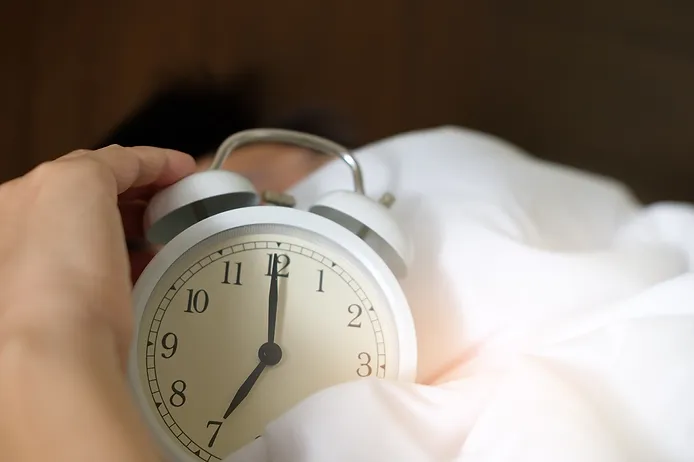A Daily Blueprint for Long-Term Wellness
Maintaining good mental health is a lot like training for a marathon. It takes time, discipline, and daily check-ins with yourself. You’ll experience setbacks and challenges—but with consistency, you’ll build the endurance and resilience needed to thrive.
Just as physical fitness relies on consistent training, emotional well-being depends on daily habits. A strong mental health routine provides structure, helps you feel more in control, and empowers you to face life’s unpredictability with greater confidence.
If you’re looking to improve your emotional resilience and overall well-being, the foundation starts here—with a daily mental health routine that nourishes your mind, body, and soul.
Why Routines Matter for Mental Health
Routines create a sense of normalcy, reduce stress, and promote a feeling of accomplishment. When we make mental health practices part of our everyday lives, they become second nature—automatic actions that support stability and self-awareness without overwhelming effort.
Psychologists often point out that habits take about 21 days to form. That means if you commit to a routine for three weeks, it can become a sustainable part of your lifestyle. And the benefits of a consistent mental health routine can ripple out into all areas of your life—relationships, work, sleep, and beyond.
The 5 Core Elements of a Strong Mental Health Routine
To create a well-rounded routine that supports lasting well-being, focus on these five foundational areas:
1. 💤 Prioritize Quality Sleep
Sleep is the bedrock of physical and mental health. Without enough rest, your mood, memory, focus, and immune function suffer. Sleep deprivation can increase irritability, anxiety, and even depressive symptoms.
Tips for Better Sleep:
-
Stick to a consistent sleep schedule—even on weekends.
-
Avoid screens at least 30–60 minutes before bed.
-
Create a calming bedtime routine (think: reading, warm baths, gentle stretching).
-
Limit caffeine and alcohol in the evening.
💡 Goal: Aim for 7–9 hours of uninterrupted, restorative sleep each night.
2. 🥗 Stick to a Healthy, Balanced Diet
There’s a growing body of research linking gut health to mental health. What you eat affects how you feel, both physically and emotionally. Nourishing your body with the right foods can help regulate mood, energy, and cognitive function.
Mental Health Diet Tips:
-
Eat plenty of fruits, vegetables, whole grains, lean proteins, and healthy fats.
-
Stay hydrated—dehydration can mimic symptoms of anxiety and fatigue.
-
Limit processed foods, sugar, and excessive caffeine.
-
Try mindful eating: sit down to eat without distractions and pay attention to hunger cues.
🥄 Bonus: Cooking and eating with loved ones boosts connection, which supports emotional health too.
3. 🏃♀️ Move Your Body Regularly
Exercise is one of the most powerful tools for improving mental health. Physical activity releases endorphins, boosts energy, improves sleep, and reduces symptoms of anxiety and depression.
Movement Ideas:
-
Go for a morning walk to clear your mind.
-
Join a fitness class or explore YouTube workouts from home.
-
Try calming forms of movement like yoga, tai chi, or swimming.
-
Dance, stretch, or even clean your space to get your body moving.
💡 You don’t need a perfect routine—just aim to move your body most days of the week.
4. 🧘♀️ Practice Daily Self-Care
Self-care isn’t selfish—it’s essential. It’s about checking in with yourself and intentionally doing things that restore your energy and mental clarity. Everyone’s self-care looks different, but the goal is the same: recharge and reduce stress.
Simple Self-Care Ideas:
-
Journal your thoughts and feelings.
-
Take a digital detox or social media break.
-
Meditate, breathe deeply, or listen to calming music.
-
Declutter a space to help clear your mind.
💛 Remember: self-care can be practical (like paying bills) or peaceful (like napping). Do what helps you feel whole.
5. 🤝 Find Connection and Support
Human connection is one of the most important protective factors for mental health. We all need people to talk to—whether it’s a friend, partner, family member, or therapist.
Ways to Build Support:
-
Schedule regular check-ins with trusted friends or loved ones.
-
Join a support group (in person or online).
-
Consider working with a mental health professional.
-
Don’t wait until you’re struggling to reach out—connection is proactive care.
🗣️ You don’t have to do this alone. Support is strength, not weakness.
Creating Your Personal Mental Health Routine
Here’s how to get started:
-
Audit Your Current Habits: Where are your strengths? Where is there room to grow?
-
Start Small: Choose one or two habits to build on each week.
-
Be Consistent, Not Perfect: Setbacks happen. What matters most is showing up again.
-
Track Your Progress: Use a habit tracker, journal, or notes app to stay motivated.
-
Adjust as Needed: Life changes, and your routine can evolve too.
Final Thoughts: A Routine That Works for You
There’s no one-size-fits-all approach to mental health. Your routine should reflect your life, your needs, and your values. It should support your well-being in ways that feel authentic and sustainable—not stressful or overwhelming.
By investing in daily practices that nourish your sleep, diet, body, soul, and support systems, you’re laying the foundation for long-term emotional resilience. You’re not just surviving—you’re thriving.
Need more support with your mental health journey?
At 3CS Counseling Center, we offer personalized support through therapy, self-care tools, and guided mental wellness planning. [Contact us today] to get started.


